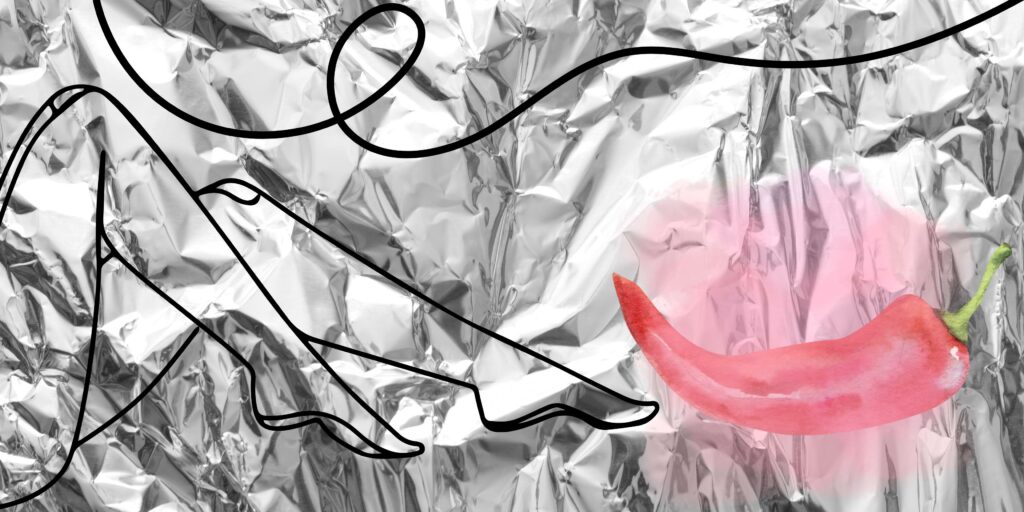For it is what Grandma made best, and it is what we knew and ate.

January 28, 2022
Grandma loves to read: People, Us, Vogue. Magazines that litter her coffee table, the ones she takes from the nail salon where she has worked, for the past thirty-some years, in hunchbacked submission. Grandma pretends to read: Gender Trouble, Camera Lucida, Slouching Towards Bethlehem. Books I litter her attic with, the ones I think I understand. In this way, we are the same.
But this all came after the War, after Grandma escaped a hellfire of bombs and then fled Vietnam, by boat, for any coast (“Whichever came first!” she likes to remind me). After that, upon reaching America, she prided herself on the fact that she could read, in English and in Vietnamese.
Grandma: whose recesses and education were abruptly ended in first grade by the Vietnam War. Who never quite learned to write.
Correction: never had the chance.
I used to not like fish sauce. I didn’t like its pungency or aftertaste, despised the way its name conjured a sense of the off-putting, of that which is literally fishy. But fish sauce does not taste like fish; nor does it taste, as the adage goes, like chicken. Online blogs and palate profiles describe fish sauce as having an earthy scent and an acrid, umami taste, suggesting that it can be replaced by soy sauce. Still, I have no recipe and can think of no analog. I could write down some guesses. Fish tears? Fish piss? Fish pulverized in a blender to a pulpy nothingness, to water? I could write down a lot of things, but where would I begin?
In my mind, fish sauce is literary, the stuff of similes: briny, like sweat, but sweet, like caramel. I can taste fish sauce as quickly as it slips from my tongue.
“The incapacity to name,” writes Roland Barthes, “is a good symptom of disturbance.” Whenever I read this line, all I hear is Grandma: “Put down your book. Come eat your food.”
In the traditions of the Vietnamese, and in my family’s accordance to such laws, practically every dish was drenched, as it were, in fish sauce. Rice: fish sauce. Vermicelli: fish sauce. Not everything gets to be a soup! I often thought as a kid, an American boy with a serious hankering for cheeseburgers. I remember yelling these thoughts aloud.
When in college I studied environmental science and became a born-again vegetarian, I raged against that same enemy—out with fish sauce. But my vegetarianism didn’t last long, and neither did the cheeseburger-only diet that followed. In any case there was fish sauce. For it is what Grandma made best, and it is what we knew and ate.
Where Grandma learned to make fish sauce, I still don’t know. Did she watch it on TV? (Did she have a TV?) Did she learn it in a cooking class from some woman clad in a white dress and gingham apron, perhaps Vietnam’s own Martha Stewart? Or was the instructor wearing an áo dài, her black hair tied up as she guided Grandma’s hands? How long did it take Grandma to learn the trick? How many questions did she ask in between gutting the anchovies, salting their skins, and leaving them aside to ferment for years, for hunger?
For all my supposed familiarity with fish sauce, it remains mysterious to me. Once, I glugged from a bottle of what I incorrectly thought was apple juice (“The hell?!” I gagged, jettisoning that trap of a Minute Maid container into the trash can). Now, whenever I’m home and trudge to the kitchen for a late-night snack, I remain wary of the caramel-colored liquids that gleam in the refrigerator light, parceled in various, reused jugs. Fish sauce, I have come to learn.
Some years ago, I finally asked Grandma for her famous (I thought) recipe for fish sauce. It occurred to me then that the very name fish sauce offers no hints of ingredients or preparation methods—only the stupid slapping together of two overgeneralized words that, when combined, read about as usefully as “meat dish” or “fruit pie.”
“So, you want my fish sauce recipe?” Grandma chimed, lips pursed with mischief.
I did. I do.
“You really think I wrote it down?”



